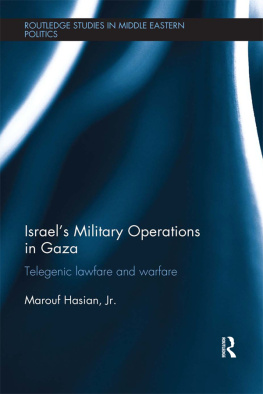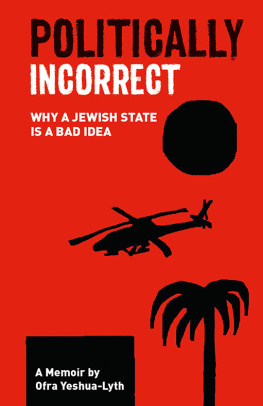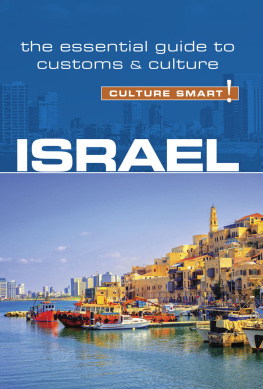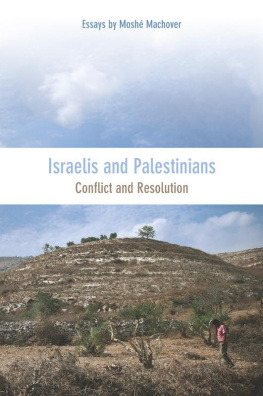This edition first published in paperback in the United States in 2014 by The Overlook Press, Peter Mayer Publishers, Inc.
For bulk and special sales, please contact , or write us at the above address.
All rights reserved. No part of this publication may be reproduced or transmitted in any form or by any means, electronic or mechanical, including photocopy, recording, or any information storage and retrieval system now known or to be invented, without permission in writing from the publisher, except by a reviewer who wishes to quote brief passages in connection with a review written for inclusion in a magazine, newspaper, or broadcast.
L ATE ONE WINTRY EVENING THE TELEPHONE RANG ON MY desk in Jerusalem. A mans voice at the other end of the line spoke softly in Hebrew without any distinguishing accent. He sounded like a man in the prime of life. I want you to help me, he pleaded, almost without emotion. He identified himself as a member of a religious seminary and did not wait for a reply.
I have a wife and five children. All day I study Talmud. I get a living allowance of eleven hundred shekels [about $300] a month as well as a stipend to cover my tuition. I also receive government welfare payments for the children and some help from friends abroad. In the mornings, my wife helps in a dress shop. Altogether we have about thirty-five hundred shekels [about $900] a month to live on. We have no apartment of our own, and our parents are willing to help us buy one, but who can afford to buy an apartment these days?
No doubt he had heard of, or perhaps had actually read, the earlier version of this book that was published in Hebrew in 2009, so it only seemed right to cut into his sadly familiar tale.
Why do you stay in the yeshiva? Why dont you look for a job?
What job? he angrily replied. What can I do? In Talmud Torah [primary school] I was never taught mathematics, English, or even Hebrew grammar. I wanted to become an accountant, but I am not qualified
Why dont you take evening courses? I countered.
The emotion that was lacking before now shone through. How can I? In the evenings I have to help my wife and children at home. If I take courses, everyone in the yeshiva will criticize me. My rabbi says one must study only holy subjects. I am not a hero.
So what do you want me to do? I was about to end the conversation.
You can help. You are a writer. Dont let this madness continue. This country needs thousands of workers. Dont let the politicians ruin our lives.
But what good will our writing do? I argued. The vote of your representatives in the Knesset is needed to uphold the government coalition. That is more important to them than your happiness.
So why dont they select only the best and the brightest to maintain and propagate the study of Jewish wisdom, as they did in Europe before the Holocaust? Do they really need ninety thousand yeshiva students to keep Jewish learning going? They have far fewer scientists in the Weitzman Institute and research persons in our high-tech industry and look at our achievements!
I was slow in replying, and he continued, raising his voice: Ill tell you why. They are afraid that I and thousands like me will serve in the army, associate with other Israelis, find good jobs, and gradually leave their flock. They are not concerned about my soul. They are worried about their jobs.
But what will my writing do? I tried to appeal to his logic, but he became even more emotional: You already did very much! Why do you think the Supreme Court tore up the Tal Law that gave the haredim an excuse not to serve in the army? The leaders of the religious parties miscalculated. They believed the Israeli public will swallow everything, including the separation of women on public buses.
He continued: Our leadership was given another blow by the government that has recently decided to raise the minimum legal age of marriage from seventeen to eighteen. Israeli society does not want our children to get married before they have a mind of their own and immediately have millions of children whom they cannot support and become more dependent on the budgets the leaders can obtain for them.
And then, just as I thought the conversation had come to an end, he added: We are in for a very interesting period. A period of a war within. Until recently the secular forces made all the mistakes. Recently my people have begun making mistakes. That is good. That will save Israel.
Y UVAL E LIZUR
As you approach Meah Shearim, the trees begin to disappear. In Zichron Moshe and Geula you will still find a few bare trees, and at the rear of the houses grass still grows in the winter. But in the alleys that surround Meah Shearim, in the blocks of nearby houses, and in Meah Shearim itself, there is neither a tree nor a bush. No grass pushes up between the cobblestones. Even the plants so typical of Jerusalems stone walls cannot be found here. It is a landscape without earth, a world without the color green. Not even a flowerpot can be seen, only stone walls, cement blocks, galvanized or rusty metal sheets. A mixture of railings, barred windows, clotheslines heavy with white laundry: a gray world of brown, white and black mixed with the black, gray and striped color of the clothes and above all the psychedelic colors of the advertisements. The yellow and pink letters call from the walls. But there are no birds chirping.
Ariel Hirschfeld, literary critic, quoted in
The Haredi Community and Environmental Quality
M ORE THAN ANYWHERE ELSE IN THE WORLD , J ERUSALEM IS a city of living history. On the Sabbathor really any day of the weekone can see phalanxes of ultra-Orthodox believers making their way to the Western Wall undisturbed in the fur hats, long sidecurls, and black garb of the Jewish ghettos of Eastern Europe that were destroyed in the Holocaust. Some visitors find their quaint appearance reassuring as a sign of the toughness of Jewish tradition in reviving the vanished life of the Eastern European shtetl. Others are appalled by their almost ghostly revival in modern Israel, bursting out of their once-cloistered life of study and prayer in the citys neighborhood known as Meah Shearim, or One Hundred Gates. The ultra-Orthodox haredimliterally those who tremble (in awe of God)depend on the largesse of the State of Israel while refusing to recognize its law until the day the Messiah arrives. It is as if they have declared: We are not part of the Zionist state; we just happen to live here.
For nineteen years, between 1948 and 1967, Meah Shearim was not only part of Israels ideological fringe but the actual border between the Jewish state and the part of Palestine ruled by the Kingdom of Jordan. The Mandelbaum Gate, named after a lonely building on the outskirts of the ultra-Orthodox community, was the only place where diplomats and tourists could legally pass between the two states. No goods were allowed to cross at all except for an official exchange of daily newspapers. In some respects Jerusalem remained divided even after the 1967 victory, not only between Jews and Arabs but between the ultra-Orthodox Jews and all others.
Until recently it looked as if the spread of the ultra-Orthodox was gaining momentum. They penetrated secular neighborhoods as young families moved away from the nations capital to escape what they viewed as a medieval cage. In several other neighborhoods, Orthodox inhabitants displaced secular families attracted by the opportunities of technical and professional employment in the business and industrial centers along the coastal plain. By 2012 about one-third of Jerusalems Jewish population was haredim, triple their proportion of Israels Jewish population of about six million.






